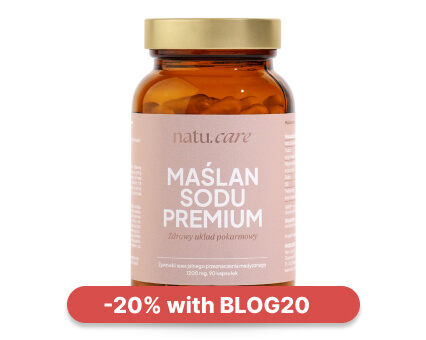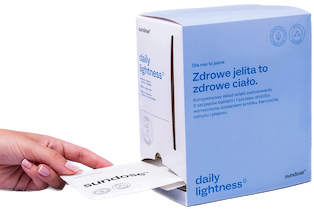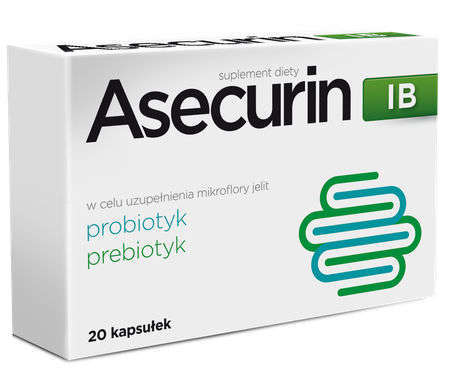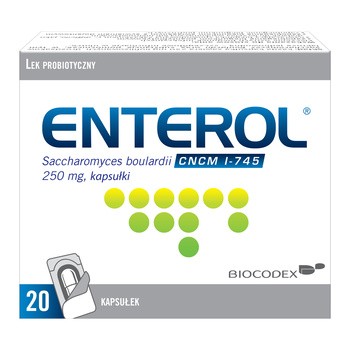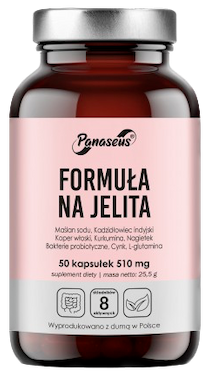Natural probiotics for the gut, lactose-free, for children and pregnant women
You probably have them in your kitchen. And they are more valuable than you think. They are natural probiotics.


Learn more about our editorial process
.

Learn more about our editorial process
.

Learn more about our editorial process
.

Learn more about our editorial process
.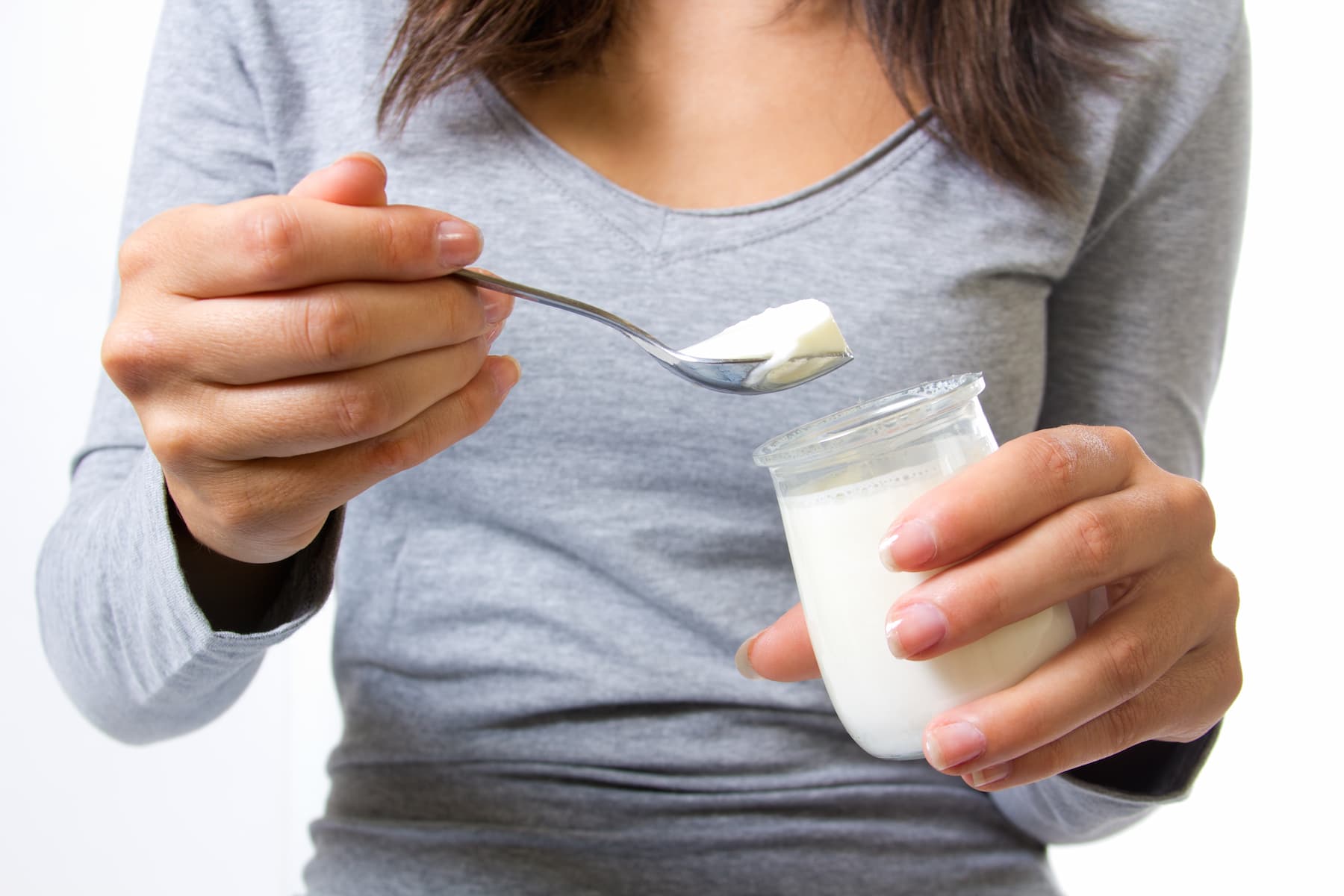
Why you can trust us
Articles on Natu.Care are written based on scientific research, data from government websites and other reliable sources. The texts are written in cooperation with doctors, nutritionists and other health and beauty experts. Articles are reviewed before publication and during significant updates.
.Learn more about our editorial process
.Information about advertisements
Content on Natu.Care may contain links to products from the sale of which we may receive a commission. When creating content, we adhere to high editorial standards and take care to be objective about the products discussed. The presence of affiliate links is not dictated by our partners, and we select the products we review ourselves completely independently.
.Learn more about our terms and Conditions
.Probiotics are not just capsules available from the pharmacy. You can also find beneficial bacteria in many foods. Find out how to look after your gut microbiota and have some tasty treats at the same time.
With clinical nutritionist Julia Skrajda, we will reveal to you the secrets of probiotic foods. With it, you can ensure your gut health, improve your immunity and even protect yourself from intimate infections.
Probiotic foods can help you to maintain your gut health, improve your immunity and even protect yourself from intimate infections.
From this article you will learn:
- What natural probiotics are. .
- Why you should eat probiotic foods.
- Why you should eat probiotic foods.
- What foods you will find the most probiotics in. .
- How to make your own probiotic. .
- What else is worth enriching your diet with. .
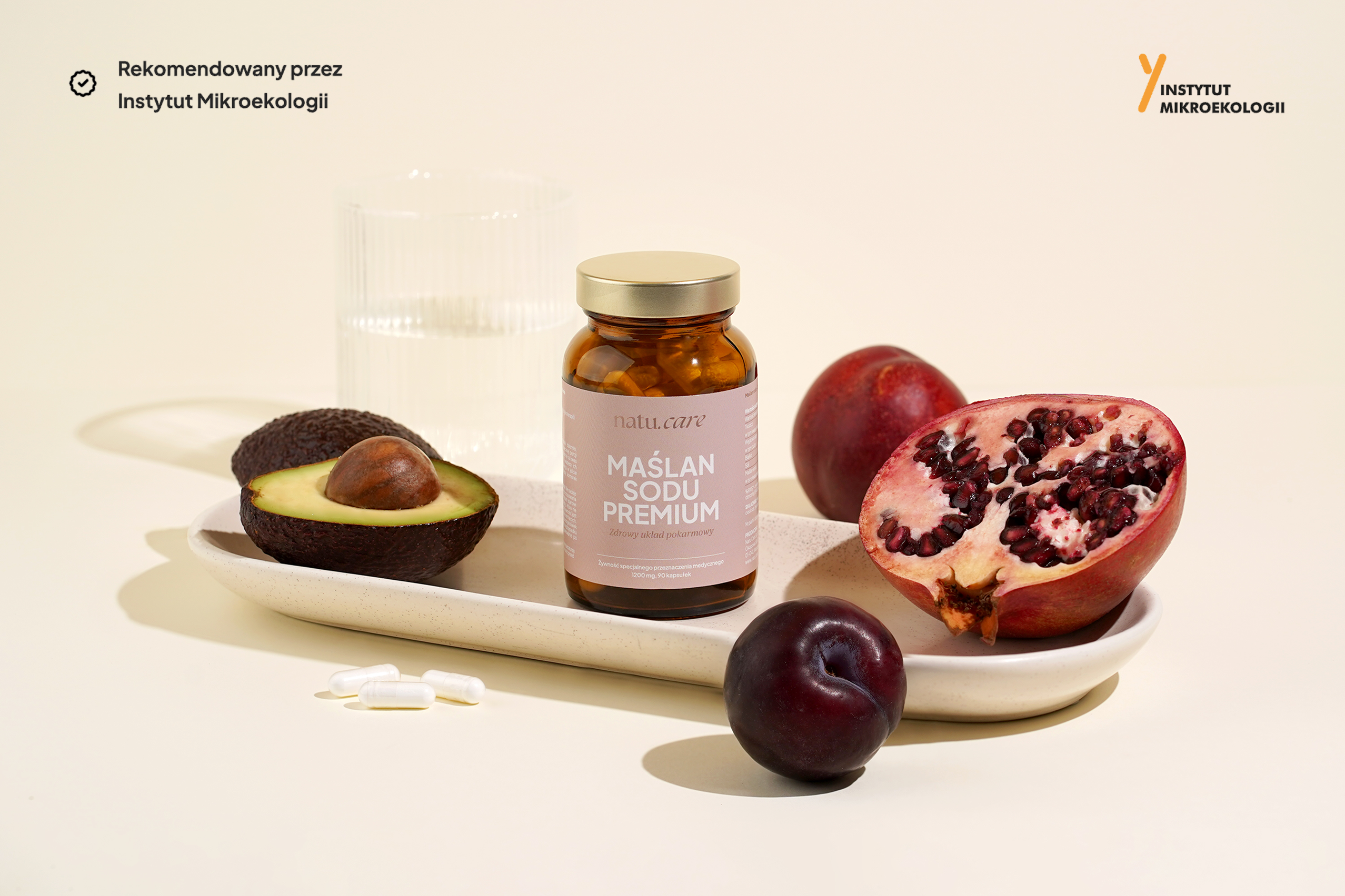
Odkryj korzyści, jakie niesie ze sobą Maślan Sodu Premium od Natu.Care!
Natu.Care Maślan Sodu Premium
Poznaj Maślan Sodu Premium – najwyższej jakości suplement wspierający zdrowie jelit. Maślan sodu pomaga w regeneracji nabłonka jelitowego, poprawia trawienie i wspiera naturalną równowagę mikroflory.
Sprawdź cenę
W końcu się lepiej czuję! Pożegnałam się ze wzdęciami i zaparciami a do tego poprawił się stan mojej cery bo zdrowe jelita to też zdrowa i piękna skóra. Polecam!@Klaudia F.
See also:
.
- All about probiotics
- All about prebiotics
- All about synbiotics
- All about psychobiotics
- The best probiotic for you
- Probiotics for pregnant women
What are natural probiotics?
.
Natural probiotics are foods that contain probiotic bacteria. Most commonly these are dairy products (cheese, yoghurt, kefir, buttermilk) and fermented vegetables (sauerkraut, pickles, tempeh, kimchi or bread acid). In such foods you will find mainly bacteria of the Lactobacillus and Bifidobacterium species.
For the fermentation of foods in general, you need bacteria. Without them, you will make neither cream nor delicious sauerkraut for bigos (yum). Fermentation is a biochemical process in which organic substances are transformed. It cannot be done without microorganisms or their metabolites (the substances they produce).
.
And since beneficial bacteria are needed to pickle cucumbers, these cucumbers - necessarily - will contain them. By eating fermented foods, we are therefore supplying probiotic bacteria to the body.
>
What can natural probiotics help with?
.
Natural probiotics, the beneficial bacteria that populate the digestive system, can help with digestive complaints such as diarrhoea, constipation, bloating and gas. They also fight pathogenic bacteria and fungi and improve the functioning of the immune system.
But does eating pickles and dairy produce as much as taking probiotics in the form of medication or supplements? Unfortunately not. Diet Probiotic diet can be a valuable addition to a healthy lifestyle, but may not be enough for specific ailments.
Why? In a probiotic preparation, you know which strains of bacteria and in what quantity you are taking. This knowledge enables you to choose the best product for your needs, as probiotic bacteria strains differ in their propertiesand.
Want to strengthen your gut barrier? It's hard to tell if the kefir or kimchi you're currently munching on contains the probiotic strains responsible for just that.
Natural supplements for gut health:
Premium Sodium Butyrate
Product description
Premium Sodium Butyrate is a natural support for your digestive system. With a high dose of butyric acid (940 mg), it supports the regeneration of the intestinal mucosa, improving gut health and function, and aids in the absorption of nutrients. By taking care of your intestines, you're taking care of the health of your entire body.
Studies involving people suffering from irritable bowel syndrome confirm that sodium butyrate is ideal for supporting issues related to bacterial flora imbalances (for example, after antibiotic therapy), constipation and diarrhea, inflammation of the intestinal mucosa, or a diet low in fiber.
Premium Sodium Butyrate capsules are made using the innovative DRcaps® technology. This guarantees that the active ingredients in the product are protected from the destructive effects of stomach acids and digestive enzymes. As a result, we can be sure that the beneficial ingredients are released in the small intestine and are fully absorbed by our body.
Premium Sodium Butyrate from Natu Care is 100% tested, and its composition contains only the highest quality raw materials.
Pros and cons
Pros:
- Supports digestive system function
- Helpful for various gastrointestinal conditions, including IBS
- High dose of butyric acid in each capsule
- Eco-friendly, clean, and tested composition
- Free from added sugar, gluten, GMOs, and lactose
- Innovative capsule technology - DRcaps
Cons:
- None
Additional Information
Take 3 capsules daily at any time of the day, preferably with a meal. Swallow the capsules whole with water.
Premium Sodium Butyrate is intended for adults.
The product should be used under medical supervision.
User review
I've been using the product for 2 weeks. My stomach feels lighter, and my digestion has improved. I recommend it.
Sundose° Daily Lightness°
Product description
Sundose° Daily Lightness° is a formula thatós supports the stomach and liver, reduces the frequency of gasóing and bloating, and supports optimal digestion. The formula contains no unnecessary additivesós, and the composition of the active ingredients (e.g. curcumin with piperine) mutually enhances their absorption.
The dietary supplement from Sundose comes in two flavour versions: orange and green.
Pros and cons
Sundose° Daily Lightness° is a formula thatós supports the stomach and liver, reduces the frequency of gasóing and bloating, and supports optimal digestion. The formula contains no unnecessary additivesós, and the composition of the active ingredients (e.g. curcumin with piperine) mutually enhances their absorption.
The dietary supplement from Sundose comes in two flavour versions: orange and green.
Additional information
Sundose° Daily Lightness° is a formula thatós supports the stomach and liver, reduces the frequency of gasóing and bloating, and supports optimal digestion. The formula contains no unnecessary additivesós, and the composition of the active ingredients (e.g. curcumin with piperine) mutually enhances their absorption.
The dietary supplement from Sundose comes in two flavour versions: orange and green.
Sundose° Daily Lightness° is a formula thatós supports the stomach and liver, reduces the frequency of gasóing and bloating, and supports optimal digestion. The formula contains no unnecessary additivesós, and the composition of the active ingredients (e.g. curcumin with piperine) mutually enhances their absorption.
The dietary supplement from Sundose comes in two flavour versions: orange and green.
Asecurin IB
Product description
Asecurin IB is a synbiotic, i.e. a combination of a probiotic and a prebiotic. It contains bacteria and yeast to support the intestines and digestive system, as well as inulin, whichós food for these microorganisms. The addition of a prebiotic supports and accelerates the growth of beneficial bacterial flora in the intestines.
Pros and cons
Asecurin IB is a synbiotic, i.e. a combination of a probiotic and a prebiotic. It contains bacteria and yeast to support the intestines and digestive system, as well as inulin, whichós food for these microorganisms. The addition of a prebiotic supports and accelerates the growth of beneficial bacterial flora in the intestines.
Additional information
Asecurin IB is a synbiotic, i.e. a combination of a probiotic and a prebiotic. It contains bacteria and yeast to support the intestines and digestive system, as well as inulin, whichós food for these microorganisms. The addition of a prebiotic supports and accelerates the growth of beneficial bacterial flora in the intestines.
Biocodex Enterol
Product description
Enterol is an OTC medicine containing a strain of yeastów particularlyóhelpful in the treatment of diarrhoea caused by infections or so-called travel diarrhoea. It is also recommended as a protective treatment of the intestines during antibiotic intake.
.
Pros and cons
Enterol is an OTC medicine containing a strain of yeastów particularlyóhelpful in the treatment of diarrhoea caused by infections or so-called travel diarrhoea. It is also recommended as a protective treatment of the intestines during antibiotic intake.
.
Additional information
Enterol is an OTC medicine containing a strain of yeastów particularlyóhelpful in the treatment of diarrhoea caused by infections or so-called travel diarrhoea. It is also recommended as a protective treatment of the intestines during antibiotic intake.
.
Enterol is an OTC medicine containing a strain of yeastów particularlyóhelpful in the treatment of diarrhoea caused by infections or so-called travel diarrhoea. It is also recommended as a protective treatment of the intestines during antibiotic intake.
.
Product description
Using Panaseus Digestive Formula can help improve intestinal health by supporting the intestinal barrier, reducing inflammation, protecting against damage and restoring healthy intestinal microflora.
Experience a rós difference in gut function with plant extracts, amino acids and probiotic bacteria.
Pros and cons
Using Panaseus Digestive Formula can help improve intestinal health by supporting the intestinal barrier, reducing inflammation, protecting against damage and restoring healthy intestinal microflora.
Experience a rós difference in gut function with plant extracts, amino acids and probiotic bacteria.
Additional information
Using Panaseus Digestive Formula can help improve intestinal health by supporting the intestinal barrier, reducing inflammation, protecting against damage and restoring healthy intestinal microflora.
Experience a rós difference in gut function with plant extracts, amino acids and probiotic bacteria.
Natural probiotics while on antibiotics
.
Antibiotics, while eliminating harmful bacteria, can also destroy the good ones, leading to an imbalance of the gut microflora. According to research, one of the best probiotics to counteract the negative effects of these drugs is yeast Saccharomyces boulardiiand.
You can find them in dairy products such as kefir. Scientists have also isolated them from the lychee fruit, among othersand.
The most popular food used as a shielding product for antibiotics is natural yoghurt. It is a rich source of probiotics such as Lactobacillus acidophilus and Bifidobacterium lactis, which help to rebuild a healthy intestinal flora.
However, not every yoghurt will be filled with good bacteria. It's best if you choose probiotic yoghurt that has specific strains of bacteria on the packaging. Remember that you need to eat it every day for it to have a protective effect - throughout your antibiotic treatment and for about two weeks afterwardsand.
It is important to emphasise that yoghurt alone (or any other food) is not enough with antibiotic therapy. Yoghurt contains specific bacterial strains, but the amount is also important. We cannot tell how many bacterial colonies are in yoghurt, so it will never replace a probiotic preparation, but it is as much as possible an advisable dietary supplement at the time of antibiotic therapy..
 .
.
Julia SkrajdaDietitian
.Kefir is another product worth considering. It's a fermented dairy drink that contains even more probiotics than yoghurt. Whenever possible, choose those with a simple, natural composition, without unnecessary additives (such as sugar or colourings).
Sauerkraut and other fermented vegetables, such as cucumbers or beetroot, are also excellent sources of natural probiotics. It is also worth adding miso and tempeh to your diet, which are rich in probiotics and additionally provide valuable nutrients.
Perhaps you should also add miso and tempeh to your diet.
Remember to consult your doctor before making any changes to your diet, especially if you are taking antibiotics.
See also:
Natural probiotics for the gut
.
Beans and other fermented foods such as probiotic yoghurts, kefirs, pickles, pickles, sourdoughs, kimchi, tempeh and some cheeses contain probiotics that benefit the gut flora and digestive processes. By strengthening the protective intestinal barrier, they also support immunity.
Natural probiotics are great if you are not suffering from any intestinal ailments. If you want to take care of your digestive system prophylactically, foods rich in probiotics should be enough.
Natural probiotics are great if you don't have any intestinal ailments.
When a specific problem arises, such as diarrhoea, or if you are looking for supportive therapy for irritable bowel syndrome (IBS), diverticulosis, etc., probiotic preparations are a better choice. Why?"
Because they allow you to select the exact strain of probiotic bacteria with action targeted to your problem. With probiotics present in food, you don't really know which ones you are taking and in what quantity. And you have no guarantee that they will support you with your ailments.
In some intestinal ailments, especially in people with more sensitive intestines, large amounts of probiotic foods can irritate the digestive system..
 .
.
Julia SkrajdaDietitian
.See also:
.
Natural probiotics and child health
.
Similar to natural probiotics for the gut, if you want to look after your baby's gut flora, probiotic foods will be ideal for this. Its addition in the diet will also support the immune system of the little ones.
This is particularly important for children attending nursery and kindergarten, where there is a high turnover of pathogens between children. Incorporating probiotic yoghurts, for example, into the menu can be a way to reduce infections.
Children should be encouraged to eat fermented foods from a young age because their microbiota and immunity is just learning the immune response and having them eat these foods regularly will cool the digestive system to support and diversify the bacteria present in their bacterial flora..
 .
.
Julia SkrajdaDietitian
..
If, however, you are looking to probiotics as a solution to a particular problem - it is better to choose a dedicated probiotic preparation that contains the strains of bacteria that your child needs most in a particular case.
Natural probiotics are a great way to improve your child's health.
Natural probiotics in pregnancy
.
Natural probiotics can have many benefits for pregnant women, as they help to maintain a healthy bacterial flora in your body, which is especially important when expecting a babyand.
Probiotics can help relieve symptoms associated with constipation, which is often a problem for pregnant women. They improve bowel function, which translates into better wellbeingand.
There are also scientific studies suggesting that probiotics can reduce your child's risk of allergies. This is because probiotics affect immune system function, which can have a positive effect on the developing immune system .
The baby's microbiota starts to form as early as fetal life, so it's important for the mother-to-be to make sure she has probiotic products in her diet too. It is a win-win situation: a benefit for both mum and baby..
 .
.
Julia SkrajdaDietitian
..
However, there are times when fermented foods during pregnancy may not serve you or simply not taste good. Sometimes you may be turned off by their smell alone (especially in the first trimester). In this case, probiotic preparations will work well.
.
Memorise that it is mandatory to consult the intake of probiotic medicines and supplements with your GP, both during pregnancy and breastfeeding. Not all preparations are tested for safety in pregnant and lactating women.
The safest product during pregnancy is the bacterium Lactobacilus Rhamnosus. It is thoroughly researched, especially when it comes to boosting immunity, but especially when it comes to improving intestinal peristalsis in terms of constipation.
 .
.
Julia SkrajdaDietitian
.Natural gynaecological probiotics
.
Scientific research suggests that certain strains of probiotic bacteria are able to pass from the gut into the reproductive tractand. This means that eating probiotic-rich foods can also potentially affect the vaginal and urinary microflora .
Eating such foods can help maintain healthy bacterial flora and an adequate vaginal pH. This is important because the right balance of bacteria helps prevent infections such as ringworm or bacterial vaginitisand.
If, however, you suffer from these ailments and want to use probiotics to complement your treatment, choose specially formulated gynaecological probiotics - after consulting your gynaecologist, of course. Such preparations contain the right strains of bacteria, in a concentrated dose.
When ringworm is already present, probiotic preparations will be a better choice to help treat the ringworm or infection. However, if we tend to have recurrences, it is worth remembering to include probiotic foods, even more so if our diet is high in simple sugars such as sweets or white bread..
 .
.
Julia SkrajdaDietitian
.See also:
.
Natural probiotics in food
.
Natural probiotics in food are beneficial bacteria and yeasts that ensure the digestive and immune systems function properly. You can find them in fermented foods: natural yoghurt, kefir, acidophilic milk, sauerkraut, pickles, tempeh, kimchi, miso and sourdoughs.
Natural probiotics in food are beneficial bacteria and yeast.
When we talk about probiotic foods, dairy usually immediately comes to mind. Indeed, dairy products are an excellent source of probiotic bacteria. It is advisable to choose those with as simple a composition as possible and without a high sugar content.
Dairy products are an excellent source of probiotic bacteria.
Dairy products rich in probiotics include:
- natural yoghurts (especially probiotic yoghurts), .
- cefirs, .
- buttermilk, .
- acidophilic milks, .
- some dairy drinks (e.g. sugar-free Actimel), .
- cottage cheese, .
- ripened cheeses (e.g. cheddar, gruyère, gouda).
- some dairy cheeses (e.g. cheddar, gruyère, gouda).
However, for some people, a considerable drawback of these products is the lactose content. clinical nutritionist Julia Skrajda reassures:
"If you're diagnosed as lactose intolerant, it's worth remembering that when you consume products rich in probiotic bacteria, there's a good chance you'll feel fine after such a product despite your intolerance."
This is because cheeses are naturally very low in lactose, and the bacteria in yoghurt, for example, feed on lactose and help us digest it. It is therefore worth choosing products that actually contain Lactobacilus and Biffidobacterium in addition. It is worth trying before giving up lactose products in advance due to intolerance."
And how do you supplement your diet with probiotics if you still cannot consume it?"
.
Natural probiotics without lactose
.
Vegetable pickles and sourdoughs come to your aid. The added benefit of eating them? They're full of vitamins (such as vitamin C) and fibre, which will further support your body's health. And they are a great option for increasing your vegetable intake in winter.
Lactose-free products rich in probiotics include:
.
- sauerkraut, .
- pickled cucumbers, .
- pickled beets, .
- pickles, .
- tempeh, .
- kimchi, .
- miso, .
- tamari (a type of sauce), .
- kombucha, .
- rejuvelac (a drink made from fermented cereal grains), .
- bread sour, .
- beetroot sour, .
You will also find even more exotic and unique delicacies on the food market, such as pickled parsley juice. If you are a fan of discovering new flavours - go ahead and try out any fermented inventions. Any food that has gone through this process will be a good source of natural probiotics.
Probiotic yogurts - examples
.
For many people, probiotic = yoghurt. Unfortunately, not all will be a good source of these bacteria. Some of them lose their beneficial properties while still in the production process, others contain strains of bacteria that do not significantly affect health. Not to mention yoghurt desserts, which have mostly sugar in them and are only linked to real yoghurt by similar packaging.
If you want to provide yourself with probiotics from yoghurt, it is best if you reach for probiotic yoghurt. Such products should state on the packaging the specific strains of bacteria and their quantity. Then you can say that you know what you are eating.
Some examples of probiotic yoghurts from the real thing:
.
- Activia Natural yogurt with probiotics, .
- ActiPlus Classic, .
- Mleczna Dolina Natural Yoghurt with Calcium,
- Krasnystaw CALYOGETIC Yoghurt with Probiotics,
- Activia Yoghurt with Probiotics,
- ActiPlus Classic.
- Krasnystaw CALPRO, .
- Milkuś Natural Yogurt, .
How to make a homemade probiotic?
.
There are at least a few ways to make a homemade "probiotic". Any of the pickles we make in winter (such as pickled cucumbers), homemade yoghurt or kombucha-based drinks, or even borscht and sour soup prepared with sourdough can be considered as such. Each of these delicacies will be a home-made probiotic.
.
For proven recipes for pickled cucumbers or cabbage (or sour soup), I refer you to your family elders. Let's not kid ourselves, I can't beat the secret recipes of mothers, grandmothers and aunts here.
I do, however, recommend you take an interest in homemade yoghurts. Making them is easier than you think. You can find a special sourdough for yoghurt in online shops, which contains the probiotic bacteria needed to make it. Once you have it, all you need to do is:
- In a metal pot, heat the milk to about 40-45°C.
- Add the sourdough starter to the milk.
- Add the sourdough starter, in the amount indicated by the manufacturer. .
- Stir well. .
- Wrap the pot with a thick blanket to maintain the temperature for as long as possible. In the winter, you can place the pot next to a heated radiator.
- Take a few minutes.
- Wait for about 8 hours. It's best to prepare everything in the evening and enjoy the delicious natural probiotic yoghurt in the morning.
- The following is the best way to do this.
Pro tip
Yoghurt like this tastes great with fresh fruit. In the off-season, I recommend you to blend it with prunes. It's heaven in a mouthful!
.
You can also easily prepare rejuvelac, a drink made from fermented, sprouted seeds. It is a valuable source of probiotics, B vitamins and vitamin K. To prepare it, all you need is a large jar, gauze and a cup of your choice of seeds: barley, wheat, rye, quinoa or buckwheat (unroasted). You can also combine several types from these seeds.
- Rinse the seeds thoroughly in a sieve. .
- Place them in a jar and pour 2 cups of water into it. Close the jar with gauze and secure with a rubber band. Set aside in a warm and dark place for 8-10 hours. .
- Pour the seeds into a sieve and rinse them again. When they have drained of excess water (but are still wet) put them back into the jar, cover with gauze and set aside for 36 hours.
- During this 36-hour period, the jar will be filled with the seeds.
- During these 36 hours, rinse the seeds three more times in this way. After this time, the seeds should germinate. .
- Rinse them in a sieve one last time and transfer them to a clean, large jar. Pour about 1.5 litres of water into them, cover the jar with gauze and set aside for 48 hours.
- Pour in about 1.5 litres of water, cover the jar with gauze and set aside for 48 hours.
- After two days, the water in the jar should turn cloudy and you will be able to see a layer of air bubbles on top. This is what the finished rejuvelac looks like. .
- Place a sieve in a clean bowl and drain the liquid from the seeds. Transfer it to bottles or smaller jars and keep in the fridge. .
Natural prebiotics
.
If you want to support your digestive system (and whole body health) with diet, probiotics alone are only half the battle. In order to keep them bravely in your gut, you need to regularly feed them. And what they eat your little allies?
Probiotic bacteria 'feed' on fractions of fibre that the stomach does not digest. These are the so-called GOS fibre (galactooligosaccharides) and FOS (fructooligosaccharides), or complex carbohydrates of plant origin (oligosaccharides). Otherwise known as prebiotics.
Oligosaccharides reach the intestines and there are fermented ("eaten") by probiotic bacteria. This fermentation process produces probiotic metabolites - substances that are beneficial to our bodiesand. One of these, for example, is sodium butyrate, which provides energy to intestinal epithelial cells. feeding your probiotic bacteria is a really profitable tie-in deal.
What to eat to provide yourself with GOS and FOS fibreand:
- cicot, .
- cicory, .
- leek, .
- garlic, .
- artichokes, .
- bananas, .
- topinambur, .
- asparagus, .
- boiled and cooled potatoes, .
- chives, .
- avocado, .
- peas, .
- parsley leaves, .
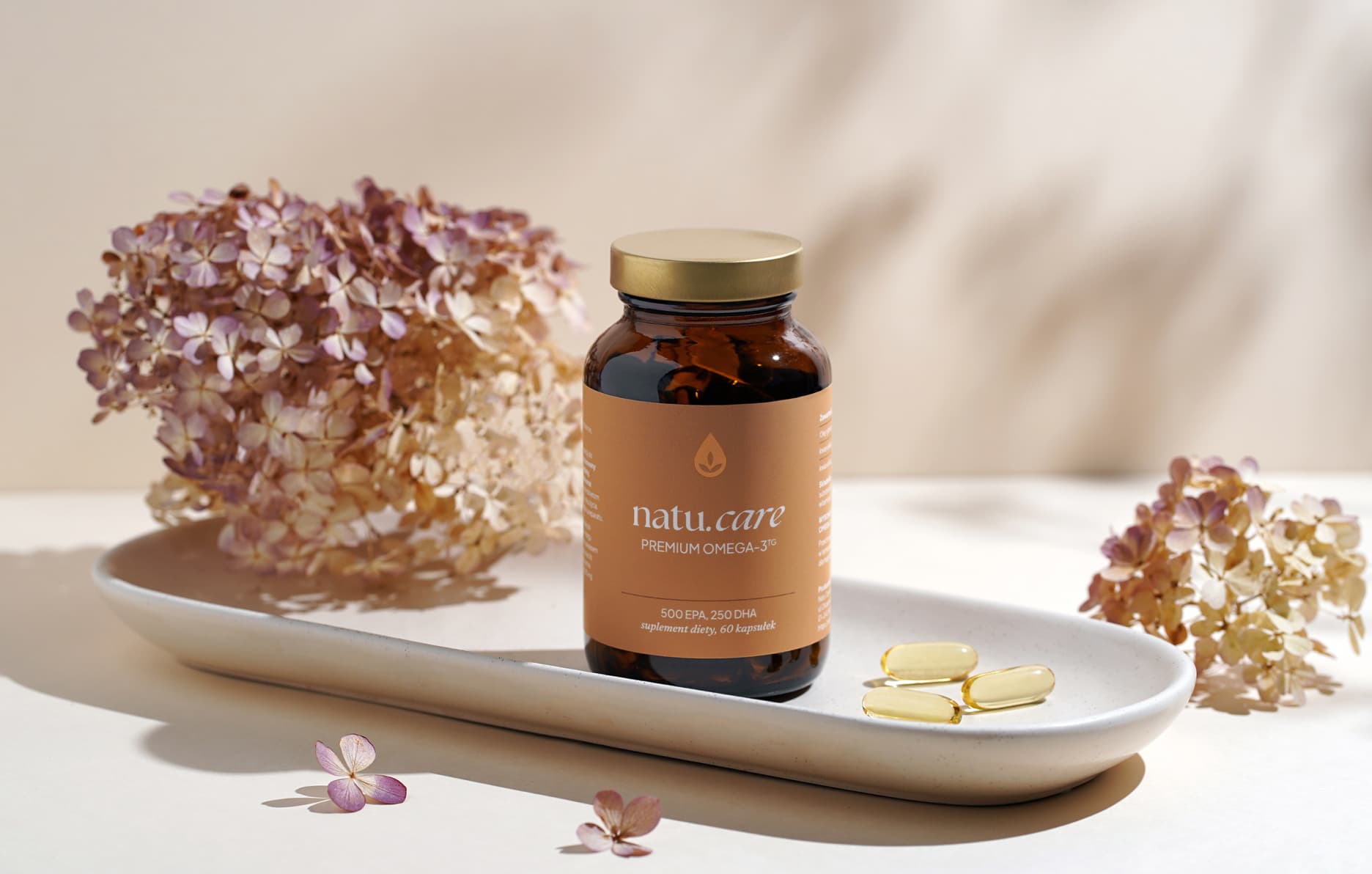
Sprawdź, za co pokochały go tysiące klientek Natu.Care Premium Omega-3ᵀᴳ -15% z kodem BLOG15
Natu.Care Omega-3ᵀᴳ Premium
Natu.Care Omega-3ᵀᴳ Premium dla zdrowia serca, mózgu i odporności. Najlepsza przyswajalność. Optymalna dawka 750 mg. Przebadana przez niezależne laboratorium.
Zobacz więcej
Produkt ma super skład, transparentną etykietę i co dla mnie jest ważne – małe kapsułki do połknięcia. Nie ma też nieprzyjemnego efektu odbijania rybą, który miałam spożywając inne produkty. Widzę znaczną poprawę odporności. Polecam!@Kasia P.
See also:
.
Summary
.
- Natural probiotics are beneficial bacteria that are found, among other things, in your intestines.
- Natural probiotics are the beneficial bacteria that are found in your intestines.
- In order to ensure a proper balance of bacterial flora in the body, it is worth enriching your diet with probiotic foods. .
- Natural probiotics can be found in dairy and fermented plant products. .
- If you want to naturally protect your intestines while on antibiotic therapy, choose a probiotic yogurt with labelled bacterial strains. .
- "Probiotics" you can make yourself at home. Simply sauerkraut, cucumbers, beetroot or be tempted to make your own probiotic yoghurt or drink.
- In addition to probiotics, it is also worth supplementing your diet with prebiotics, which are complex carbohydrates of plant origin.
FAQ
.Is a banana a probiotic?
.No, a banana is not a probiotic. Probiotics are live microorganisms that have a beneficial effect on the health of the host, mainly by improving the balance of the gut microflora. Examples of probiotic foods include yoghurts and pickles.
However, bananas are also prebiotic. Prebiotics are nutrients that are not digested by the body, but stimulate the growth and activity of beneficial bacteria in the gut. Bananas are rich in fructooligosaccharides, which are prebiotics.
Eat bananas to provide food for your beneficial gut bacteria. This allows these microorganisms to thrive and help maintain health your entire body.
How to make probiotic yoghurt.
Start by buying milk and a probiotic yogurt starter (known as a sourdough starter). Choose whole milk as it contains more nutrients.
- Warm the milk to around 40-45°C. Use a kitchen thermometer to monitor the temperature.
- Add a yoghurt starter.
- Add the yoghurt starter to the milk. Mix thoroughly. .
- Pour the mixture into clean jars. .
- Place the jars in a warm place and leave for 6-8 hours. .
- After this time, the yoghurt should thicken. Store it in the fridge. .
Probiotics in yoghurt help maintain adequate bacterial flora in the digestive system, which contributes to overall health. By preparing the yoghurt yourself, you have full control over the ingredients and the fermentation process.
What are the most probiotics in?
.Most probiotics can be found in fermented foods. Eat natural yoghurts, kefirs, sauerkraut and pickles. Additionally, enrich your diet with miso and tempeh - they are rich in Bifidobacterium and Lactobacillus. The probiotics in these products help to balance the gut microflora, which is key to digestive health.
Which probiotic is the healthiest?
.There is no clear answer to this question. Certainly the healthiest will be probiotics with appropriately labelled strains of bacteria that have been proven in studies to work. Match the probiotic to the problem you want to use it for - probiotic bacteria vary in properties depending on the specific species and strain.
Is kefir a probiotic?
.Yes, kefir is a probiotic. It contains various strains of bacteria and yeast that are beneficial to gut health. Drink kefir regularly as it can improve the balance of bacteria in the gut, which is key to health the whole body.
Kefir is also rich in protein, calcium and vitamin B12. Choose natural kefir, without sugar, to get the maximum benefits. Regular consumption of kefir can help improve digestive and immune health.
Will a probiotic help the gut?
.Yes, probiotics can help improve gut function. However, it is best if you consult your doctor before taking them - especially if you have health problems. Dosage depends on the specific product, but 1-2 capsules per day are usually recommended.
Dietitian Julia Skrajda suggests:
The probiotic is best taken at night, for better absorption. This is when our intestines are not busy with digestion and the work they do during the day, so they can "focus" on assimilating the bacteria.
Probiotics improve gut health by increasing the diversity of the microbiota, which is key to their work. They can also help reduce symptoms of irritable bowel syndrome, such as abdominal pain, bloating and irregular bowel movements.
Does kefir have a protective effect?
.Yes, kefir can have a shielding effect on the digestive system. It is worth drinking kefir every day because it is rich in probiotics, which improve the intestinal microflora. The beneficial bacterial species present in kefir (e.g. Lactobacillus and Bifidobacterium), help with digestion and nutrient absorption, as well as fighting pathogens.
Incorporate kefir into your diet, especially after antibiotic therapy, to restore the balance of the bacterial flora. For example, drink a glass of kefir for breakfast or use it as a smoothie base. Remember that regular consumption of kefir can help improve your overall health.
.
Sources
.See all
.Barthow, C., Wickens, K., Stanley, T., Mitchell, E. A., Maude, R., Abels, P., Purdie, G., Murphy, R., Stone, P., Kang, J., Hood, F., Rowden, J., Barnes, P., Fitzharris, P., Craig, J., Slykerman, R. F., & Crane, J. (2016). The Probiotics in Pregnancy Study (PiP Study): Rationale and design of a double-blind randomised controlled trial to improve maternal health during pregnancy and prevent infant eczema and allergy. BMC Pregnancy and Childbirth, 16(1), 133. https://doi.org/10.1186/s12884-016-0923-y
Carlson, J. L., Erickson, J. M., Lloyd, B. B., & Slavin, J. L. (2018). Health Effects and Sources of Prebiotic Dietary Fiber. Current Developments in Nutrition, 2(3), nzy005. https://doi.org/10.1093/cdn/nzy005
Das, T. K., Pradhan, S., Chakrabarti, S., Mondal, K. C., & Ghosh, K. (2022). Current status of probiotic and related health benefits. Applied Food Research, 2(2), 100185. https://doi.org/10.1016/j.afres.2022.100185
Davani-Davari, D., Negahdaripour, M., Karimzadeh, I., Seifan, M., Mohkam, M., Masoumi, S. J., Berenjian, A., & Ghasemi, Y. (2019). Prebiotics: Definition, Types, Sources, Mechanisms, and Clinical Applications. Foods (Basel, Switzerland), 8(3), 92. https://doi.org/10.3390/foods8030092
F, A., S, A. S., A, B., Sm, J., M, Z., Mt, K., & H, P. (2023). Health-promoting properties of Saccharomyces cerevisiae var. Boulardii as a probiotic; characteristics, isolation, and applications in dairy products. Critical Reviews in Food Science and Nutrition, 63(4). https://doi.org/10.1080/10408398.2021.1949577
Kechagia, M., Basoulis, D., Konstantopoulou, S., Dimitriadi, D., Gyftopoulou, K., Skarmoutsou, N., & Fakiri, E. M. (2013). Health Benefits of Probiotics: A Review. International Scholarly Research Notices, 2013, e481651. https://doi.org/10.5402/2013/481651
Liu, A. T., Chen, S., Jena, P. K., Sheng, L., Hu, Y., & Wan, Y.-J. Y. (2021). Probiotics Improve Gastrointestinal Function and Life Quality in Pregnancy. Nutrients, 13(11), Article 11. https://doi.org/10.3390/nu13113931
Nagel, M.Sc. P. (2017, April 19). Dietary fiber-An underappreciated cure for aging. National Center for Nutrition Education. https://ncez.pzh.gov.pl/seniorzy/blonnik-pokarmowy-niedoceniane-lekarstwo-w-procesie-starzenia-sie/
Né, M., & bot-Vivinus, C. H. (2014). Multispecies probiotic protects gut barrier function in experimental models. World Journal of Gastroenterology, 20(22), 6832-6843. https://doi.org/10.3748/wjg.v20.i22.6832
Norfuad, F. A., Mokhtar, M. H., & Nur Azurah, A. G. (2023). Beneficial Effects of Probiotics on Benign Gynaecological Disorders: A Review. Nutrients, 15(12), Article 12. https://doi.org/10.3390/nu15122733
Office of Dietary Supplements-Probiotics. (n.d.). Retrieved 11 August 2023, from https://ods.od.nih.gov/factsheets/Probiotics-HealthProfessional/
Peterson, C. T., Rodionov, D. A., Iablokov, S. N., Pung, M. A., Chopra, D., Mills, P. J., & Peterson, S. N. (2019). Prebiotic Potential of Culinary Spices Used to Support Digestion and Bioabsorption. Evidence-Based Complementary and Alternative Medicine: eCAM, 2019, 8973704. https://doi.org/10.1155/2019/8973704
Reid, G., Gadir, A. A., & Dhir, R. (2019). Probiotics: Reiterating What They Are and What They Are Not. Frontiers in Microbiology, 10. https://www.frontiersin.org/articles/10.3389/fmicb.2019.00424
Tavakoly, R., Hadi, A., Rafie, N., Talaei, B., Marx, W., & Arab, A. (2021). Effect of Probiotic Consumption on Immune Response in Athletes: A Meta-analysis. International Journal of Sports Medicine, 42(09), 769-781. https://doi.org/10.1055/a-1463-3303
Wieërs, G., Belkhir, L., Enaud, R., Leclercq, S., Philippart de Foy, J.-M., Dequenne, I., de Timary, P., & Cani, P. D. (2020). How Probiotics Affect the Microbiota. Frontiers in Cellular and Infection Microbiology, 9. https://www.frontiersin.org/articles/10.3389/fcimb.2019.00454
Yadav, M. K., Kumari, I., Singh, B., Sharma, K. K., & Tiwari, S. K. (2022). Probiotics, prebiotics and synbiotics: Safe options for next-generation therapeutics. Applied Microbiology and Biotechnology, 106(2), 505-521. https://doi.org/10.1007/s00253-021-11646-8
.
Editorials
Meet the team


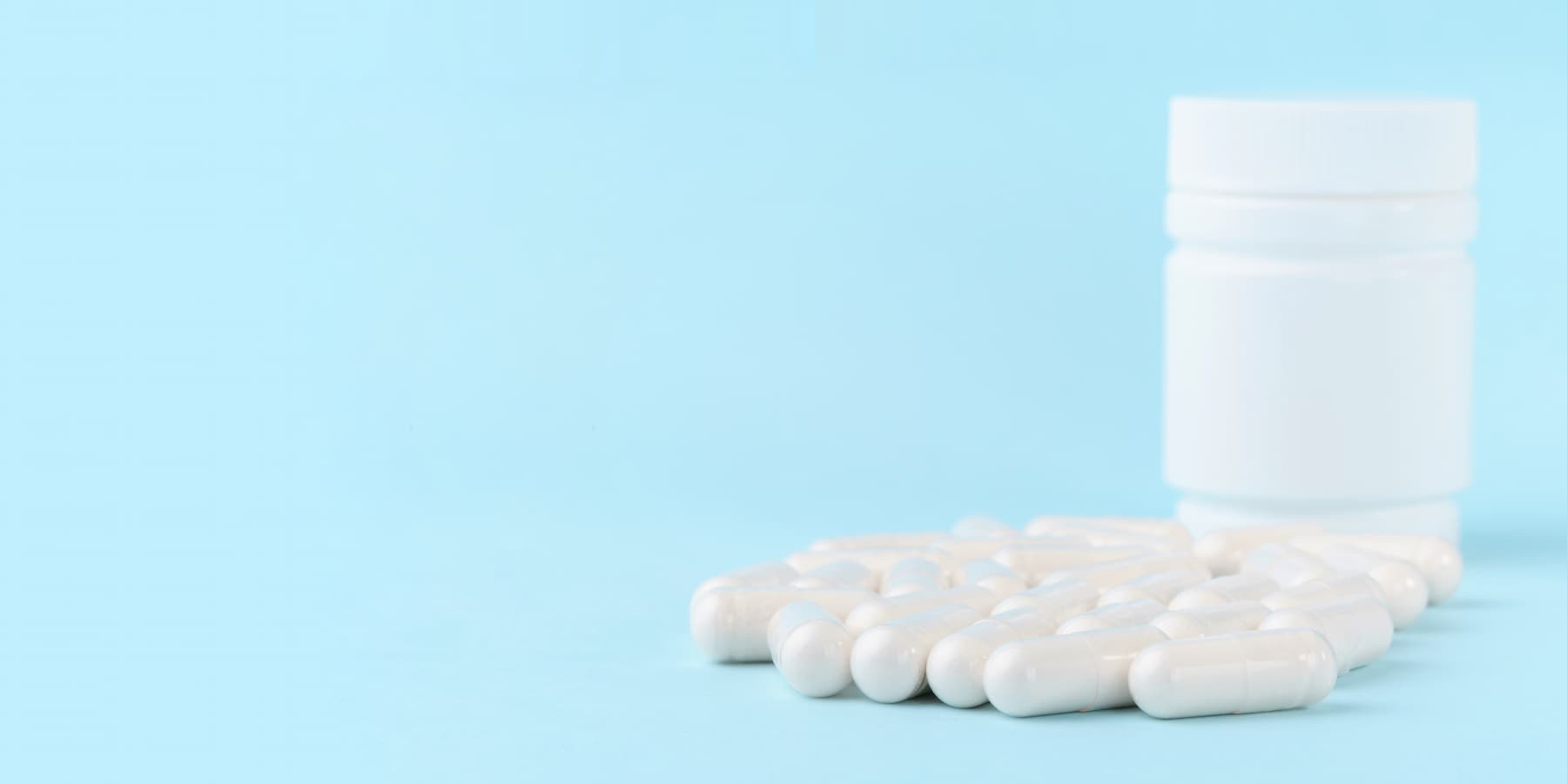
Chondroitin helps the joints and other elements of the body.

Glutathione is one of the most potent antioxidants for supporting the body's health. Find out how it works and where to get it from.

See why hip joints hurt and how to treat their ailments.
